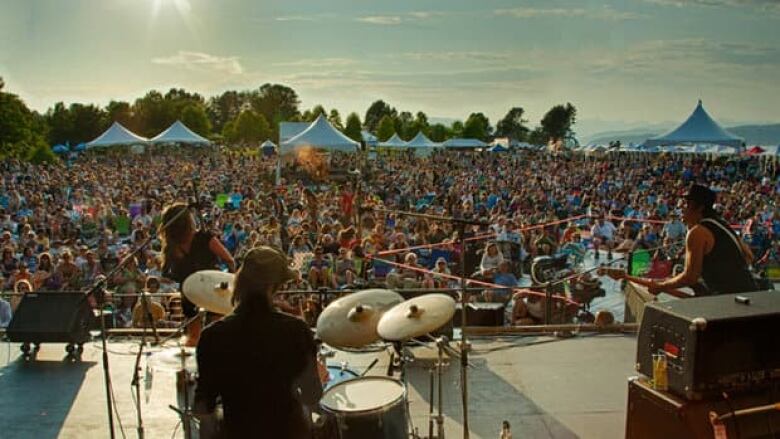From garage bands to big stars, two studies taking stock of B.C. music sector
Two studies currently underway assessing health and impact of various segments in B.C's music sector

Two studies are underway to assess the viability, impact and sustainability of the music industry in B.C. and specifically in Vancouver.
The first study is being conducted by Music Canada Live and is a province-wide assessment of the live music sector with a focus on documenting the activity of venues, festivals and promoters.
A second study is focusing on Vancouver's own "music ecosystem" and will include an audit completed by a global leader in the music ecology, Sound Diplomacy.
"Music should be a piece of the infrastructure that happens within the city," said Alex Grigg, executive director of Music B.C.
'One of the marquee cities of music'
Unlike other entertainment or tech industries, the music sector doesn't have any existing data on economic contribution or other measurable indicators that might help shape policy.
Because of that and gaps in other information, Vancouver is lagging behind cities such as Toronto when it comes to supporting music, according to Grigg.
"I would argue that the music industry, next to the film and tech side, is probably the third-largest contributor [to Vancouver's economy] but again, we've never really had any numbers to back that up," Grigg told Stephen Quinn, host of CBC's The Early Edition.
He pointed to London, U.K., where mayor Sadiq Khan recently created and hired a "night czar" to "champion the city's nighttime culture and economy … [and work] with the nighttime industries, local authorities, Metropolitan Police, Transport for London and the public to ensure London thrives as a 24-hour city," as part of a broader cultural infrastructure plan.
Last year, Toronto developed its own municipal strategy for its music scene, something Grigg would like to see completed for Vancouver, along with the creation of an incubator for local music.
"Vancouver, for the size of it and being one of the marquee cities of music, doesn't have a strategy," said Grigg.
He said he hears from artists who struggle to get permits and operate within the current confines of city policy but hopes these studies will give him more hard data to present to officials.
The goal is to publish the findings of both studies by June with a preliminary look at the numbers set to be ready for a forum scheduled for the 2018 Juno Awards in Vancouver in March.
"It's a glorious opportunity," he said. "The world and the Canadian music industry will be here."
With files from CBC Radio One's The Early Edition